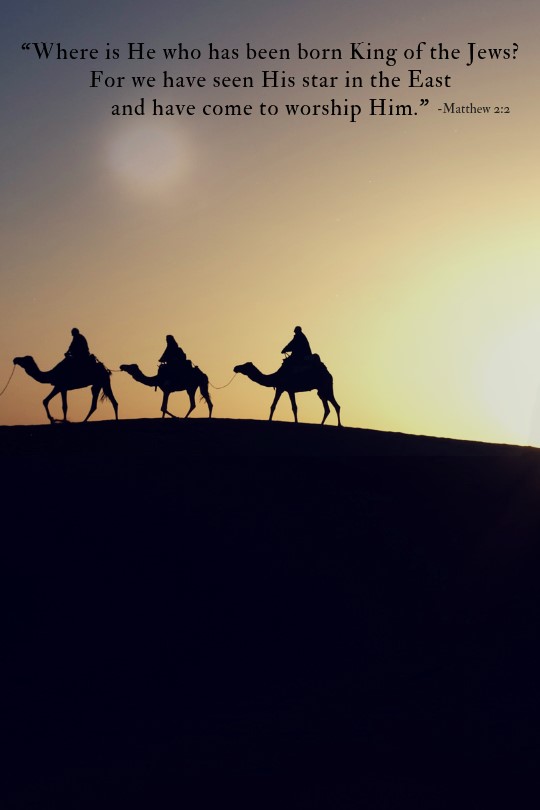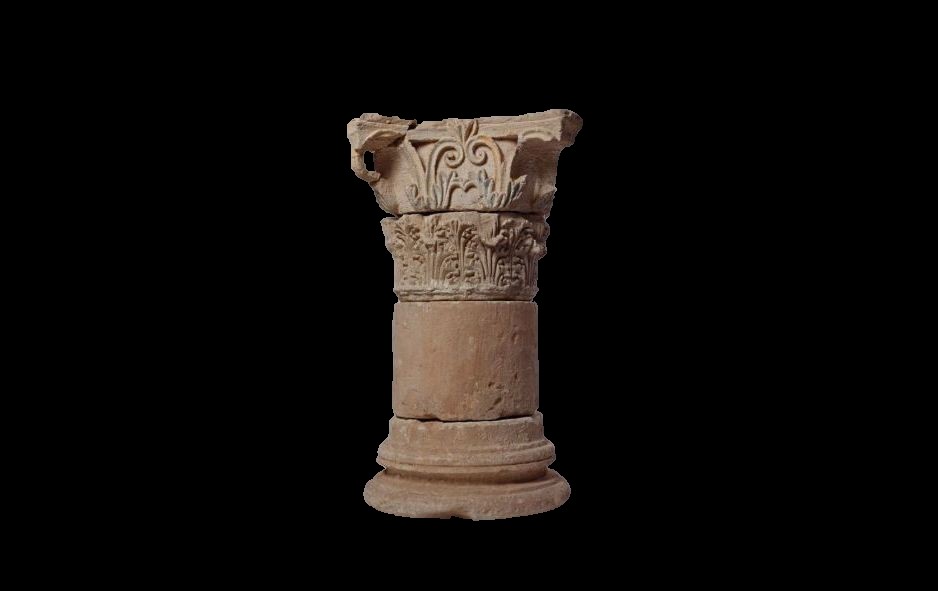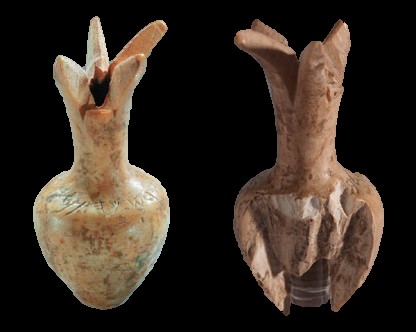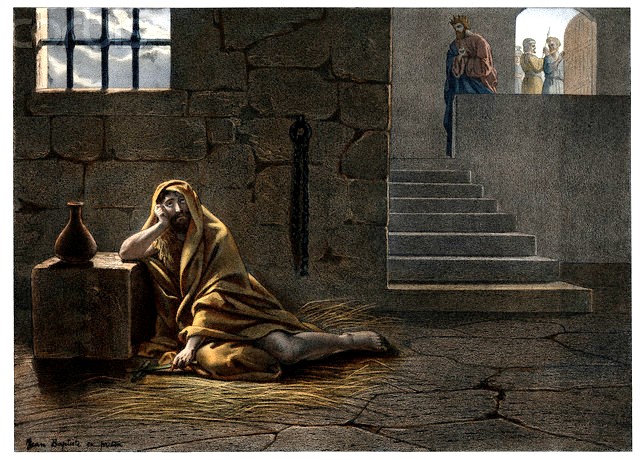The Importance of Prophets – Part 14
In Part One of this series we examined the basic importance of prophets, as well as who and what are the ‘major’ and ‘minor’ prophets of the Word. Additionally, in parts One and Two, we studied the three ‘major’ prophets: Isaiah, Jeremiah, and Ezekiel. We then moved on to study the twelve ‘minor’ prophets—in parts Three, Four, Five, Six, Seven, Eight, and Nine—before completing our study with the Old Testament prophets: Elijah, Elisha, Samuel, Nathan, and Daniel in parts Ten, Eleven, Twelve, and Thirteen.
Now, as we near the end of this series, we will explore prophecy and prophets in the New Testament…
Prophecy in the New Testament:
While true prophets of the Lord, who only spoke His will, seem rare in New Testament times, there are still many who did. However, unlike with the Old Testament prophets, we seldom follow a New Testament prophet for the majority of their life. In fact, it is rare for us to follow them in the same way at all, despite many similarities to their Old Testament counterparts.
Individuals who many consider to be prophets in the New Testament include figures such as, Jesus, John the Baptist, John the author of Revelation, Barnabas, etc. Yet, many of these men did not solely act as prophets, and some, in fact, would be better classified as teachers.
Obviously, Jesus performed many roles during His life on earth. Yet, as the Son of God it is perhaps beyond man to classify Him as anything but that. However, He did speak forth many prophetic words throughout His years of teaching and ministering. Nonetheless, prophecies began further back in the New Testament than the years in which Jesus taught and prophesied.
Before Jesus was conceived, an angel of the Lord acted in place of a prophet for both Joseph and Mary. Furthermore, an angel prophesied of the coming of John the Baptist to Zacharias, his father. Thusly, angels of the Lord brought forth the first prophetic words of the New Testament.
Yet, what of men? After all, prophecy does not always come from an angel…
In addition to the angel giving Zacharias a prophecy of his son’s birth, he also gave him a prophecy to speak… to proclaim that John would be a prophet, preparing the way for Lord. Yet, the story most well-known of New Testament prophecy came some months later, when Jesus’ birth was near…
At that time, wise men came to worship Jesus based upon their ability to read the signs; to know the timing of prophecy.

These men acted as interpreters of prophecy, despite, perhaps, not being known for the giving of prophetic words. Yet, because of the Word, we do know that they received a prophetic dream warning them not to return to King Herod on their return home, indicating one of two things… either the Lord gave them this one dream for their sakes and His Son’s, OR they had the gift of prophecy and prophetic dreams. Either way, these men who dealt in prophecies would not be the last to interact with Jesus.

(Source: The Israel Museum; by Meidad Suchowolski. Column from Herod’s palace at Cypros)
As Jesus grew, many would give prophetic words regarding who He was, such as Simeon, who had been told of God that he would not die until he had seen the Lord’s Christ… thus, when Jesus’ earthly parents brought Jesus to Simeon, Simeon prophesied.
Other prophets, such as the prophetess known as Anna, would not have any prophetic words written, but upon seeing Jesus, spoke of Him, “to all those who looked for redemption in Jerusalem.” Even the mention of these accounts in the Word indicate they understood the prophecies of old coming to pass… from Genesis to Malachi.
“Therefore the Lord Himself will give you a sign: Behold, the virgin shall conceive and bear a Son, and shall call His name Immanuel.”—Isaiah 7:14
Yet, even before Jesus would begin His formative teaching years when He reached the age of thirty—as was rabbinical tradition—one would prepare the way for Him, prophesying of His coming.
John the Baptist:
Near the time of Jesus’ birth, though some months prior, John the Baptist, cousin of Jesus, was born. We know John’s age because when Mary went to tell Elizabeth—mother of John—that she had been visited by an angel and was to be with child, John leapt within Elizabeth’s womb for joy! Thus, we know that the two boys would have been born within a few months of one another.
Yet, who was John, other than the cousin of Jesus, who prepared the way for His work?
The first man of the New Testament who we can wholly say acted as a prophet, John lived first within the area of the Temple and then, of course, within the wilderness. Yet, interestingly it is John’s lineage that made a way for him to do the work of a prophet… and had him living away from the Temple.

John was born of the lineage of Aaron, of the priesthood chosen BY GOD, not man. Many biblical scholars believe that Zacharias was not only a priest, but THE high priest of the lineage of Aaron. As such, John was meant to become the next high priest within the Temple. However, there were those of other lineages, whom God had not chosen for positions of priesthood, who bought and maneuvered their way in, likely with Roman aid… men who, like many of the Sadducees and Pharisees, did not fear or honor the Lord, only seeking position, wealth, and glory.

(Source: Zachi Dvira; Temple Mount Sifting Project. 2nd Temple tiles.)
So, when John, who the people knew was the rightful high priest, went into the wilderness to prepare the way, the Jewish community flocked to him! Yes, they were tired of the false, double-minded nature of the religious leaders and were eagerly awaiting the coming of Messiah, but they also followed John because of who HE was…
Chosen of God to listen and speak His will.
A New Testament prophet…

(Source: Israel Museum, by Nahum Slapak. Scepter top from the Temple.)
It is interesting that John chose to go to the Jordan to baptize and speak to the people considering the location’s long history. While we cannot definitively know why John chose this location—God’s guidance being key—it may have been due to what that location witnessed generations prior…
The crossing into the Promised Land, when the people still trusted and followed God.
At that time Joshua and all Israel crossed over on dry ground, and upon the floor of the Jordan twelve stones were laid, one for each tribe, that could not be moved… a reminder of what God did. His power. His chosen place to bring His people into the Promised Land!
John’s ancestors would have been right in the thick of the crossing, being a vital part of the tribe responsible for all articles of the Tabernacle. Additionally, it is almost certain—if the belief that John’s father was the high priest is accurate—that John was descended from the high priest of the time of the crossing over, Aaron’s eldest surviving son!
Thus, the Jordan was a return for both John’s prophecy and Jesus’ baptism. A return to the beginning of prophecy and covenant fulfillment…

Aside from the book of Luke we are not given much insight into John’s life before he was in the wilderness; primarily when he was baptizing and prophesying at the Jordan River.
“…the word of God came to John the son of Zacharias in the wilderness. And he went into all the region around the Jordan, preaching a baptism of repentance for the remission of sins, as… written in the book of… Isaiah the prophet, saying:
“The voice of one crying in the wilderness:
‘Prepare the way of the Lord;
make His paths straight…
and all flesh shall see the salvation of God.’”—Luke 3:2-4, 6
And John preached as well as prophesied. First, preaching with prophecy for the people to behave in a manner worthy of the forgiveness of sins and times to come, then prophesying of the coming of One mightier than he…
Mightier than his heritage, and even mightier than the Lord had made him!
“…I indeed baptize you with water; but One mightier than I is coming, whose sandal strap I am not worthy to loose. He will baptize you with the Holy Spirit and fire. His winnowing fan is in His hand, and He will thoroughly clean out His threshing floor, and gather the wheat into His barn; but the chaff He will burn with unquenchable fire.”—Luke 3:16-17
It is here where the life of John the Baptist progresses beyond teaching and prophesying… to a place of fulfilling of prophecies, as well as what would have been John’s priestly duties—had others not been wrongfully put in his place.
Now, Jesus came to John at the Jordan while John was there, teaching, prophesying, and baptizing the people in water—preparing them for the baptism of the Holy Spirit—and Jesus asked John to baptize/immerse Him. This request and Who it is made to is significant in many respects…
Throughout the Word kings were anointed into their kingship—baptized in a fashion—by prophets and/or the high priest. John, likely being both in God’s sight, was doubly qualified.
Furthermore, John had been preparing the way for Jesus’ ministry, prophesying of His coming. John had leapt in the womb of his mother when he knew that the King of kings was coming… giving John even more claim to the privilege.
Finally, the location where John was teaching, prophesying, and baptizing could have been—given God’s intricacies—the very spot God allowed His people to cross into the Promised Land; bringing forth the true salvation of His people from the same place their earthly salvation was granted.
“Then Jesus came… to John at the Jordan to be baptized by him. And John tried to prevent Him, saying, ‘I need to be baptized by You, and are You coming to me?’
“But Jesus answered… ‘Permit it to be so now, for thus it is fitting for us to fulfill all righteousness.’ Then he allowed Him.
“When He had been baptized, Jesus came up immediately from the water; and behold, the heavens were opened to Him, and He saw the Spirit of God descending like a dove and alighting upon Him. And suddenly a voice came from heaven, saying, ‘This is My beloved Son, in whom I am well pleased.’”—Matthew 3:13-17

After this event John continued much as he had for a time, preparing people for the ministry of Jesus who had yet to meet Him; prophesying that it was time for Messiah. Yet, interestingly, John was somehow uncertain that Jesus was the Messiah, even after all he said before baptizing Jesus…
“And John, calling two of his disciples… sent them to Jesus, saying, ‘Are You the Coming One, or do we look for another?’
“…the men… said, ‘John the Baptist has sent us to You, saying, “Are You the Coming One, or do we look for another?”’ And that very hour He cured many of infirmities, afflictions, and evil spirits; and to many blind He gave sight.
“Jesus answered… ‘Go and tell John… that the blind see, the lame walk, the lepers are cleansed, the deaf hear, the dead are raised, the poor have the gospel preached to them…’”—Luke 7:19-22
While we see John’s uncertainty not only in the book of Luke, but in Matthew as well, it is only in the book of Matthew that we learn that John was imprisoned at the time of inquiry—due to his speaking to Herod that his relationship with his brother’s wife was not lawful.

(John the Baptist imprisoned)
Yet, Jesus did not take offense at John’s inquiry. Indeed, He spoke kindly of John to the people after John’s disciples return…
“…Jesus began to say to the multitudes concerning John: ‘What did you go out into the wilderness to see? A reed shaken by the wind? But what did you go out to see? A man clothed in soft garments? Indeed, those who wear soft clothing are in kings’ houses. But what did you go out to see? A prophet? Yes, I say to you, and more than a prophet. For this is he of whom it is written:
“‘“Behold, I send My messenger before Your face,
Who will prepare Your way before You.”
“‘Assuredly, I say to you, among those born of women there has not risen one greater than John the Baptist; but he who is least in the kingdom of heaven is greater than he. And from the days of John the Baptist until now the kingdom of heaven suffers violence, and the violent take it by force. For all the prophets and the law prophesied until John. And if you are willing to receive it, he is Elijah who is to come. He who has ears to hear, let him hear!’”—Matthew 11:7-15
And so, John received the words of Jesus from his disciples even in prison, and while we do not know his response, given how John lived and his prophetic gifting, he most likely received the truth of it. A truth that would bring him peace within his cell…
Yet, what of that which Jesus spoke… that John was Elijah who is to come?
That question has many biblical scholars stumped. Some claim that John was Elijah reborn; others that John was acting as an Elijah, fulfilling an Elijah call.
Interestingly, many focus less upon Jesus’ statement and more on the physical similarities in biblical descriptions. (See Part-Ten for further discussion on the similarities of Elijah and John)
A much-desired peace, for not long after, Herod—who had placed John in prison—allowed himself to be tricked into beheading John by the very woman John had told Herod was unlawful for him to have, his brother’s wife, Herodias.
“But when Herod’s birthday was celebrated, the daughter of Herodias danced before them and pleased Herod. Therefore he promised with an oath to give her whatever she might ask.
“So she… prompted by her mother, said, ‘Give me John the Baptist’s head here on a platter.’
“And the king was sorry; nevertheless, because of the oaths and because of those who sat with him, he commanded it to be given… And his head was brought on a platter and given to the girl, and she brought it to her mother. Then his disciples came and took away the body and buried it, and went and told Jesus.”—Matthew 14:6-12
Thus, John was beheaded, and his body taken and buried. Yet, in all the days of John’s life he served the Lord, taking his place as prophet to herald the coming of Messiah.
Despite having his God-given position in the Temple taken from him, despite being imprisoned, he did not see fit to turn to the left or right, serving the Lord only. Therefore, as Jesus said, there were none born among women who rose higher than John…
As we near the end of this series we will explore prophetic words given within the New Testament and see how many prophesies spoken are still coming to pass today!